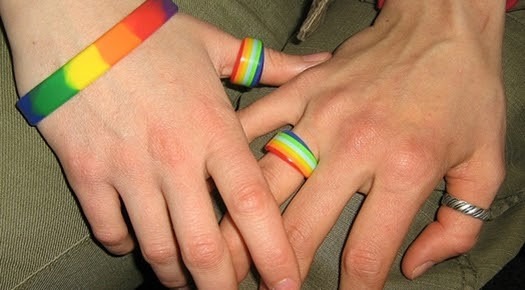
Photo Credits: Wikimedia
Nathan Brittsan and Joanna Maxon were expelled from Fuller Theological Seminary and the reason was the fact that they were married to people of the same sex. Brittsan decided to earn his Masters of Divinity at Fuller, an evangelical, multidenominational graduate school that allowed an LGBTQ student group on campus. He never hid his sexual orientation or the fact that he belonged to LGBTQ-affirming church. He was expelled and he tried to appeal the school's decision without success so now he is joining a lawsuit against the Seminary that was brought by Maxon in November 2019. Brittsan and Maxon allege in a complaint that Fuller Theological Seminary violated anti-discrimination laws when it expelled them after learning they were married to people of the same sex.
While Brittsan was expelled just days into his first quarter at Fuller, Maxon had been expelled from the seminary in October 2018 as she was close to the end of her studies. When the Seminary learned about her same-sex marriage they submitted a complaint that she violated the sexual standards statement in the school’s community standards. Because media reported about Maxon's case, Brittsan found out about it and contacted Maxon's attorney in order to join the lawsuit.
According to Paul Southwick, the attorney representing Brittsan and Maxon, the outcome of the suit could significantly impact how faith-based institutions across the country apply Title IX, which prohibits sex discrimination in federally funded education programs or activities, to LGBTQ students in same-sex marriages. “That’s one of the main implications,” said Paul Southwick, as The Religion News Service reports. “That would apply not only to this institution, but to other religiously affiliated institutions across the country, whether or not they have religious exemptions from Title IX.”
Fuller, on the other hand, is represented by The Becket Fund for Religious Liberty; a Washington, D.C. based nonprofit organization whose senior counsel, Daniel Blomberg, thinks that this case is about a religious organization's ability to train its leadership. “It’s really about whether or not religious groups get to define what it means to be a member of that particular religious community or whether you can use government power to force religious groups to change their minds and change their beliefs,” he said, as The Religion News Service reports. “It’s a very dangerous attempt. It’s a very dangerous argument.”
The main point of this lawsuit is to protect students from discrimination and to protect their privacy. In both cases Fuller's administration services took advantage of information provided to them by students themselves in different non-related procedures. This is a serious attack on their privacy and a pure example of discrimination against LGBTQ people because of their same-sex marriage.
